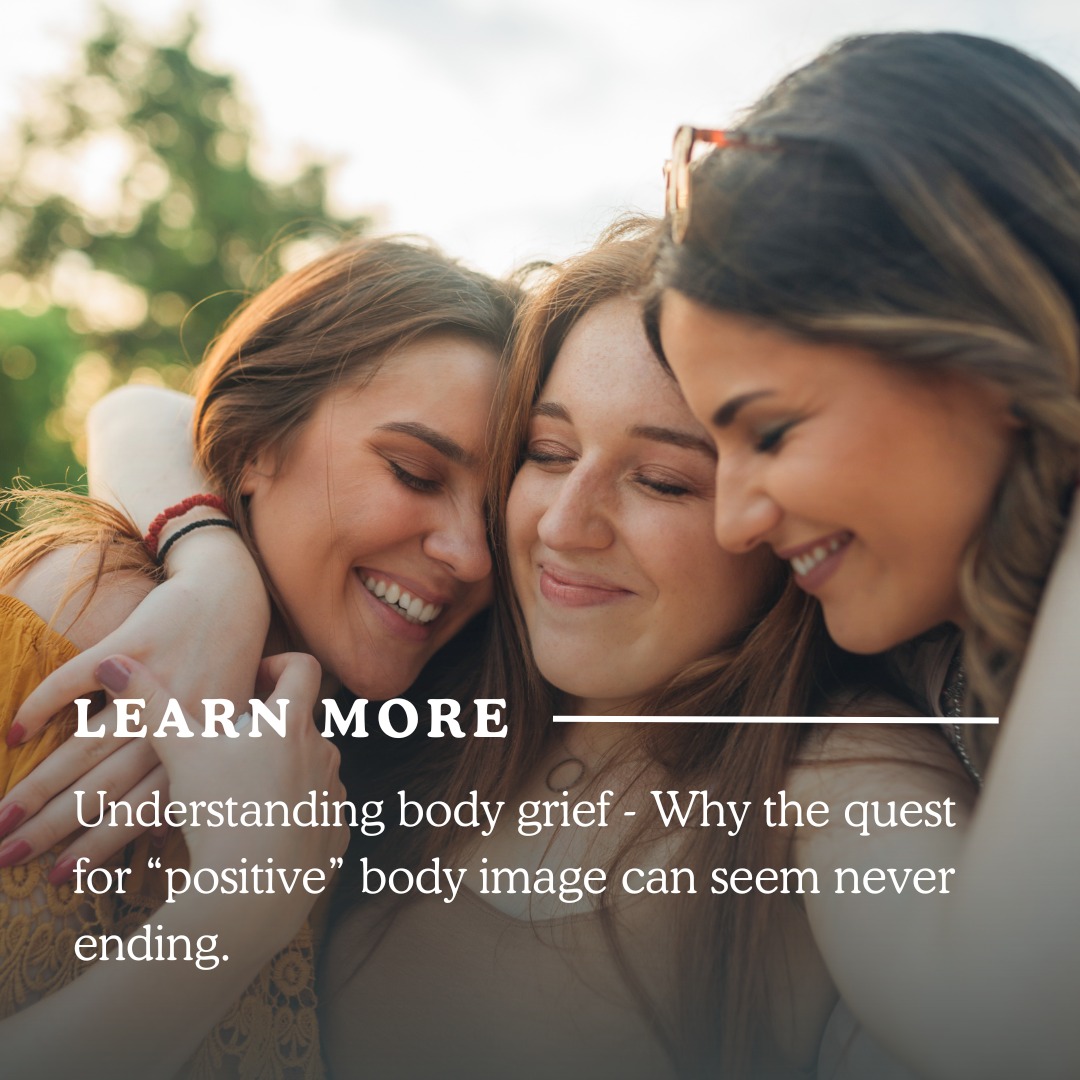Beyond Acceptance: Understanding Body Grief
Beyond Acceptance: The Journey Through Body Grief
What Exactly Is Body Grief?
Body grief refers to the sadness, distress, or emotional pain we feel in response to changes in our body's appearance, function, or mobility. Rooted in the stages of grief originally described by Elisabeth Kübler-Ross, body grief encompasses the emotional process of navigating shifts in our physical selves. This grief is particularly poignant when we relinquish attempts to control our appearance through chronic dieting or restrictive practices.
Experiencing body grief can feel especially confusing when the bodily changes result from neutral or even positive life events. Common experiences that can trigger body grief include:
Eating disorder recovery
Ending chronic dieting practices
Unexpected weight loss or weight gain following illness or injury
Pregnancy or postpartum changes
Puberty and adolescence
Aging, particularly during menopause
Loss of mobility or physical capabilities
Physical, sexual, or medical trauma
Stages of Grief
Body grief, much like other types of grief, typically unfolds across several recognizable stages:
Denial
Initially, denial acts as an emotional buffer, allowing you to temporarily avoid the painful acceptance of your body's changes. You may find yourself clinging to hopes of returning to a previous appearance or striving toward an idealized vision of yourself and the associated life you imagined.
Anger
As denial gives way, anger often emerges as a natural reaction to the frustration and sense of powerlessness over your bodily changes. This anger can be directed inward, at societal expectations, at the circumstances prompting the change, or at your body itself. It’s not uncommon during this stage to feel tempted to return to disordered eating or other harmful coping strategies.
Bargaining
Bargaining involves negotiating with yourself or your body, frequently manifesting through promises of new diets, rigorous exercise plans, or conditions about how and when you'll allow yourself to be seen or acknowledged. You might postpone medical appointments, avoid social gatherings, or refuse to appear in photographs until your body feels "acceptable."
Depression
After repeatedly cycling through denial, anger, and bargaining, feelings of depression and profound sadness may deepen. If you've closely linked your physical appearance to your self-worth, capabilities, or perceived deservingness of love, grieving these perceived losses is entirely understandable and necessary.
Acceptance
Acceptance doesn't necessarily mean loving or even liking your body; rather, it involves recognizing and acknowledging your body as it is, without resistance or judgment. Many individuals find the concept of body neutrality helpful—a practice of detaching one's worth from their physical appearance and focusing instead on appreciation for their body's function and existence.
Moving Forward
Recognizing that you may revisit these stages periodically is essential, as body grief isn’t a linear process. Cultivating acceptance and neutrality is ongoing, particularly in a world saturated with conflicting messages about body ideals, anti-aging pressures, and weight bias.
Moving beyond mere acceptance can involve discovering deeper purpose beyond your physical appearance or capabilities, transforming grief into meaningful action. You might choose to advocate for improved education and awareness around body image and eating disorders, challenge harmful biases in healthcare, or create resources aimed at healing the damaging societal narratives about weight and appearance.
Ultimately, body grief presents an opportunity—a meaningful invitation to reconnect deeply with yourself and channel your personal experiences into creating lasting, transformative change, both within yourself and your broader community.
(Sources include "Understanding Body Grief" by Bri Campos https://bodyimagewithbri.com , the book Body Neutral by Jessi Kneeland and Missing The Body You Used To Have? by Ashley Broadwater)
Seeking Support for Processing Body Grief
If you find yourself feeling anxious, overwhelmed, or stuck in unhelpful financial patterns, know that you are not alone.
Through counseling, you can:
✔ Explore and process the emotional impact of body changes
✔ Learn compassionate ways to respond to body-related distress
✔ Reconnect with personal values beyond your physical self
Body grief can significantly impact your mental and emotional health. Therapy provides a supportive space to untangle these feelings and move toward greater body acceptance, resilience, and authentic self-worth.
Contact me at heather@hslcounseling.com or fill out the contact form for more information!


